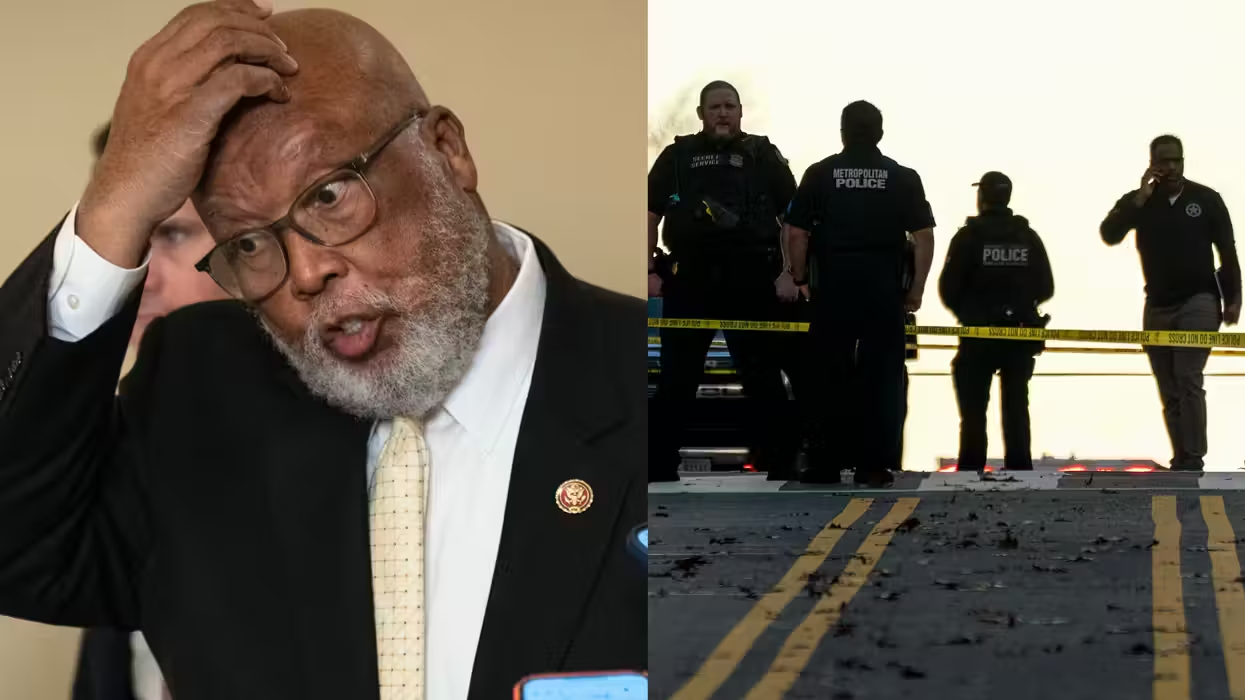Police license plate readers in California captured and stored more than 260,000 images of innocent passersby, while only bringing one criminal to justice.
Just three license plate readers in the city of Menlo Park, California, captured 263,430 images of vehicles between July 1 and Oct. 1. According to a police report obtained by San Jose Mercury News, law enforcement officials mounted two readers on police cruisers and one on an unmarked vehicle at the beginning of the summer, but the massive sweep only led to one arrest.
 The license plate readers captured more than 260,000 images of plates in three months, but the effort only led to one collar; the police recovered a stolen vehicle and arrested the thief (Image source: AP)
The license plate readers captured more than 260,000 images of plates in three months, but the effort only led to one collar; the police recovered a stolen vehicle and arrested the thief (Image source: AP)
The high-tech readers use four high-speed cameras, which take pictures of license plates that are in front of, behind and even alongside the police vehicles. The images and location information are then uploaded to a server managed by a subsection of the Department of Homeland Security called the Northern California Regional Intelligence Center.
But out of 260,000 plate numbers captured, just 141 of the scans registered as a "hit," which means the plate matched vehicles and registrations on an active wanted list associated with stolen cars or missing people. The one successful case in Menlo Park involved police recovering a stolen vehicle and arresting the crook.
The three readers set the police department back by nearly $60,000, but the expensive technology isn't foolproof. A "vast majority" of the 141 hits were actually a "false read," according to a police staff report.
Police spokeswoman Nicole Acker told the paper that a "false read" occurs when the actual photo of a plate differs from what the computer generates. "A simplified example of a type of false read would be when an 8 is read as a B and vice versa," Acker explained.
In some cases, a misread license plate lands an innocent person on the wrong side of a gun. A Kansas police officer drew his weapon on a man and his pregnant wife when the license plate reader there misread a "7" on the vehicle's plate.
Though license plate readers have raised serious concern among citizens who prefer not to be tracked at random, Menlo Park Police Commander David Bertini said concerned local residents introduced the idea of investing in license plate readers.
"Citizens of the Belle Haven came to us during neighborhood meetings and wanted to know what could be done to reduce the crime in that specific neighborhood," he said. "And it was the residents who said, 'Hey, why don't you put [surveillance] cameras up there? Why don't you put license plate readers out there?'"
But it seems the cameras -- or perhaps just knowing the cameras are operating -- have curbed some of the criminal activity regularly associated with the area.
"I don't want to jinx this, but I have to tell you, since January 1, we have not had one shooting in the Belle Haven, which is unheard of in that neighborhood," Bertini said.
The police report detailing the license plate reader activity was released at a city council meeting Nov. 18 meeting agenda, is the first one created since department obtained the readers.
Bertini said judging the effectiveness of the technology after only three months wouldn't be a fair assessment of the usefulness, since the tools provide a deterrent effect as well. He said taking a look at the program after another several years would provide sufficient data to argue whether level of reduced criminal activity was worth the investment and widespread tracking.
"Why don't you ask me in two or three years and I can probably give you a better idea," Bertini said.
Mayor Ray Mueller also painted the license plate readers as secondary tool in the police arsenal rather than a catch-all. He also suggested the city leadership was focused on setting boundaries for how long the captured information can be stored.
 The license plate readers have high speed cameras that capture images of plates behind, in front and along side the police cruisers, but the technology isn't perfect and a vast majority of the scans present "false reads." (Image source: Photobucket)
The license plate readers have high speed cameras that capture images of plates behind, in front and along side the police cruisers, but the technology isn't perfect and a vast majority of the scans present "false reads." (Image source: Photobucket)
"To my knowledge, we are the first city to actually enact an ordinance to regulate how long the city can keep drivers' data," he said. "Not only can the information only be kept for six months, but it is an ordinance, which means that if anyone, including a police officer or government official, misuses that information, they have committed a crime."
In June, the Department of Homeland Security abruptly canceled plans to ask a private company to give the government access to a nationwide database of license plate tracking information, primarily because the contract soliciting the capability wasn't clear about how long the information captured would be stored.
Jennifer Lynch, a senior staff attorney with the San Francisco-based civil liberties group Electronic Frontier Foundation, said at the time that the lack of clarity on how long such information is stored represented serious privacy concerns.
“The base level concern is that license plate data is location data, and location data is very revealing,” Lynch said. “It can tell you a lot about a person’s life: where they go, who they associate with, what kind of religion they practice, what doctors they visit.”
What do you think?
--

 The license plate readers captured more than 260,000 images of plates in three months, but the effort only led to one collar; the police recovered a stolen vehicle and arrested the thief (Image source: AP)
The license plate readers captured more than 260,000 images of plates in three months, but the effort only led to one collar; the police recovered a stolen vehicle and arrested the thief (Image source: AP)






